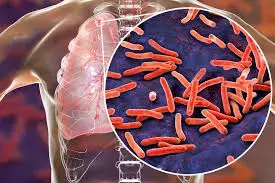- Home
- Medical news & Guidelines
- Anesthesiology
- Cardiology and CTVS
- Critical Care
- Dentistry
- Dermatology
- Diabetes and Endocrinology
- ENT
- Gastroenterology
- Medicine
- Nephrology
- Neurology
- Obstretics-Gynaecology
- Oncology
- Ophthalmology
- Orthopaedics
- Pediatrics-Neonatology
- Psychiatry
- Pulmonology
- Radiology
- Surgery
- Urology
- Laboratory Medicine
- Diet
- Nursing
- Paramedical
- Physiotherapy
- Health news
- Fact Check
- Bone Health Fact Check
- Brain Health Fact Check
- Cancer Related Fact Check
- Child Care Fact Check
- Dental and oral health fact check
- Diabetes and metabolic health fact check
- Diet and Nutrition Fact Check
- Eye and ENT Care Fact Check
- Fitness fact check
- Gut health fact check
- Heart health fact check
- Kidney health fact check
- Medical education fact check
- Men's health fact check
- Respiratory fact check
- Skin and hair care fact check
- Vaccine and Immunization fact check
- Women's health fact check
- AYUSH
- State News
- Andaman and Nicobar Islands
- Andhra Pradesh
- Arunachal Pradesh
- Assam
- Bihar
- Chandigarh
- Chattisgarh
- Dadra and Nagar Haveli
- Daman and Diu
- Delhi
- Goa
- Gujarat
- Haryana
- Himachal Pradesh
- Jammu & Kashmir
- Jharkhand
- Karnataka
- Kerala
- Ladakh
- Lakshadweep
- Madhya Pradesh
- Maharashtra
- Manipur
- Meghalaya
- Mizoram
- Nagaland
- Odisha
- Puducherry
- Punjab
- Rajasthan
- Sikkim
- Tamil Nadu
- Telangana
- Tripura
- Uttar Pradesh
- Uttrakhand
- West Bengal
- Medical Education
- Industry
Study suggests that hematological markers may aid early TB detection in people living with HIV

An Indian study suggests that hematological markers may aid early TB detection in people living with HIV (PLHIV). Tuberculosis (TB) remains a significant health challenge among people living with HIV (PLHIV), underscoring the need for early diagnosis and prompt treatment.
Hematological parameters have emerged as potential markers for predicting and monitoring TB disease. This study aimed to assess the utility of hematological parameters in predicting TB disease among PLHIV. This retrospective cohort study was conducted at an Antiretroviral Therapy (ART) Centre in Gujarat, India, including PLHIV registered between January 2018 and March 2024. Hematological parameters, including hemoglobin levels, platelet counts, white blood cell differentials, and derived ratios (monocyte-lymphocyte ratio [MLR] and neutrophil-lymphocyte ratio [NLR]), were extracted from medical records.
TB diagnosis was based on bacteriological confirmation or clinical criteria. Cox proportional hazards models and Kaplan-Meier survival analyses were performed to assess the association between hematological parameters and TB disease, adjusting for potential confounders. Results: Among 810 PLHIV, 202 (25%) had TB disease. PLHIV with TB had a higher prevalence of anemia (91.6% vs. 60.0%, p < 0.001), leucocytosis (16.3% vs. 7.6%, p = 0.0004), and neutrophilia (25.2% vs. 9.4%, p < 0.0001) compared to those without TB. A higher MLR ratio (> 0.23) was associated with an increased risk of TB (HR: 5.44, 95% CI: 3.94-7.50, p < 0.001), independent of anemia. Anemia was also an independent predictor of TB.
Hematological parameters, particularly MLR ratio and anemia status, showed strong associations with TB disease among PLHIV. An MLR > 0.23 was associated with a 5.44-fold increased risk of TB, while anemia increased the risk by 4.37-fold. These readily available and cost-effective markers could enhance early TB detection and risk stratification in PLHIV, especially in resource-limited settings. Integration of these parameters into existing screening protocols may improve targeted interventions and patient outcomes.
Reference:
M Y, Vamja R, Makwana N, Parmar PA, Sundar RNS. Haematological markers as predictive tools for tuberculosis in PLHIV: a retrospective cohort study in Gujarat, India. BMC Infect Dis. 2025 Feb 17;25(1):228. doi: 10.1186/s12879-025-10625-y. PMID: 39962402; PMCID: PMC11834239.
Dr. Shravani Dali has completed her BDS from Pravara institute of medical sciences, loni. Following which she extensively worked in the healthcare sector for 2+ years. She has been actively involved in writing blogs in field of health and wellness. Currently she is pursuing her Masters of public health-health administration from Tata institute of social sciences. She can be contacted at editorial@medicaldialogues.in.
Dr Kamal Kant Kohli-MBBS, DTCD- a chest specialist with more than 30 years of practice and a flair for writing clinical articles, Dr Kamal Kant Kohli joined Medical Dialogues as a Chief Editor of Medical News. Besides writing articles, as an editor, he proofreads and verifies all the medical content published on Medical Dialogues including those coming from journals, studies,medical conferences,guidelines etc. Email: drkohli@medicaldialogues.in. Contact no. 011-43720751


